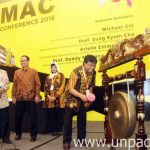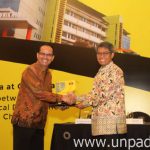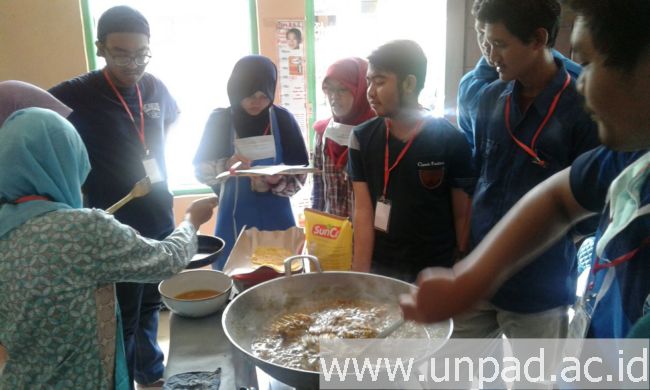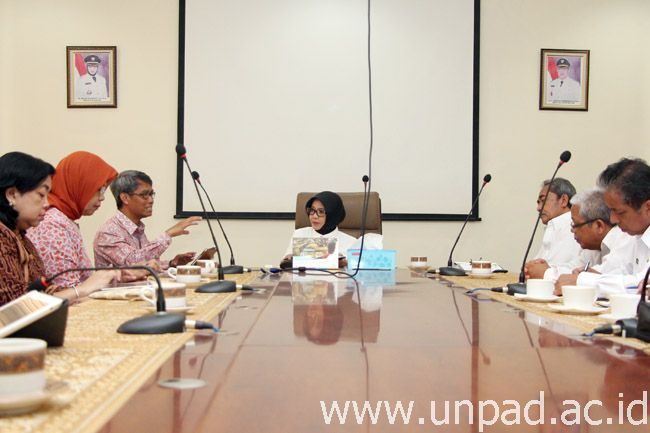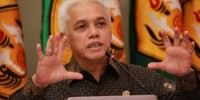[Unpad.ac.id, 6/12/2016] Mainstream media is currently considered to be eroded by the rapid development of information technology. It is also evident from a survey conducted by a leading British magazine, The Economist, showing a downward trend in the print media in the United States, Region North Europe, Australia and New Zealand.
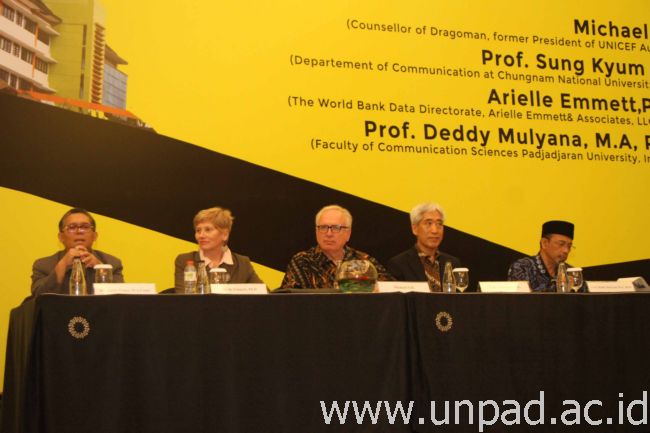
According to the Advisor to the Minister of Communications and Mass Media Ministry of Communication and Information (Kemenkominfo) RI, Drs. Gun Gun Siswadi, M.Si., the mainstream media is now considered less updated in the reported information. It is proposed by Gun Gun during reading the keynote speech of Minister of Communication and Information RI Rudiantara, MBA, at the International Seminar on “Mass Media at Crossroads International Cenference 2016” held at the Faculty of Communication Science, Padjadjaran University in Trans Luxury Hotel, Bandung, Tuesday (6/12).
Rapid technological information allowed the public to interact more quickly in the proclamation of events than the mainstream media. This then led to the term of citizen journalism, in which information from the public could be disseminated through cyberspace. This concept emphasizes the speed of information dissemination.
Meanwhile the mainstream media tended to emphasize the credibility and the code of ethics of journalism. Gun Gun said that public journalism is eliminating the role of editors and journalists professionalism in delivering the news.
Competition is increasingly becoming a challenge if social media participated in presenting the event. “The mainstream media is getting harder to control the public in submitting information on social media,” said Gun Gun.
Although considered more credible, Gun Gun said further, competition of mainstream media and digital platforms is not always sweet. The mainstream media promoted the credibility and the code of conduct also sometimes gravitated to retrieve information from a digital to a control role in the mainstream media tend not running.
Kemenkominfo RI has an interest in supporting the existence of the mainstream media. On the one hand, this type of media is able to inform the various programs run by the Government. Gun Gun considered that the development of the mainstream media will contribute to the improvement of public welfare, not only in urban but also reach out to rural areas and areas leading Indonesia.
“The media should be able to provide information and entertainment values that promote the national values,” said Gun Gun.
Thus, he expected the mainstream media to uphold professionalism and code of ethics. The media should be able to improve the competence and welfare of its workers. He believes that without the competence and professionalism of the mainstream media will increasingly bleak.
Gun Gun also encouraged the contribution of academics to be able to build public education related to the use of digital technology. It is expected to create a community of people who uphold the code of conduct in the use of digital technology.
Meanwhile, Rector in the opening of the seminar said that the mass media also has a role in disseminating various studies conducted by academics. Therefore, the Rector has always stressed on the aspect of media into one of the stakeholders in the cross-sector collaboration undertaken by Unpad.
Through Pentahelix collaboration, Universitas Padjadjaran conducted a series of cross-sector with government, business, community, and media. This cooperation is an implementation Unpad as a third generation university, which is now no longer the role of universities as a source of knowledge, but contribute actively to improve the welfare of society.
Dean of Faculty of Communication Science Unpad, Dr. Dadang Rahmat Hidayat, S. Sos., SH, M.Si., said that this seminar will dissect the strategic role of the mass media and contemporary viewed from the perspective of Social and Cultural Communication, Communication Technology and Environmental Studies, and Business Communication and Media Industry.
The seminar was attended by 111 speakers from 9 countries, namely the United States, England, Australia, South Korea, Pakistan, Malaysia, India, Turkey, and Indonesia. The seminar also presented four main speakers: Michael Gill (Counsellor of Dragoman), Prof. Kyum Sung Cho (Professor of Communication at Chungnam National University South Korea), Arielle Emmett, PhD (American journalist), and Prof. Deddy Mulyana, M.A., PhD (Professor of Facutly of Communication Sciences Unpad). *
Reported by Arief Maulana / eh
